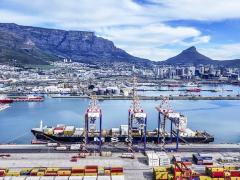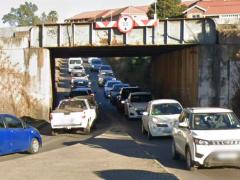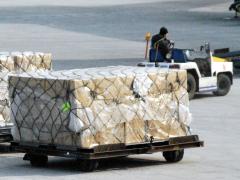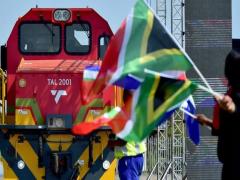Airports Company South Africa (Acsa) has launched an infrastructure maintenance and capital expansion programme across nine airports in a move to modernise facilities and reinforce long-term economic growth.
The state-owned company’s infrastructure programme includes projects ranging from sewerage system repairs to high-tech landing equipment upgrades, reflecting a pivot from pandemic recovery mode to strategic reinvestment.
“This programme is a strong signal of Acsa’s recovery following the Covid-19 pandemic,” Acsa CEO Mpumi Mpofu said during a briefing with airline representatives on Thursday.
“It reflects our return to financial sustainability and our ability to reinvest in critical infrastructure that will serve the aviation industry and the broader economy for years to come,” Mpofu said.
Under its national maintenance programme, Acsa is prioritising high-impact infrastructure upgrades, including sewerage, ablution and fire escape systems, while implementing safety and hygiene protocols in high-traffic areas.
At OR Tambo International Airport (Ortia) a phased refurbishment of ablution facilities is already under way, including male, female, baby-change and accessible restrooms. The project, which started in December 2024, is scheduled for completion by December 2025.
Mpofu said the airport improvements were not only critical for compliance but designed to raise passenger comfort and experience.
“It’s part of our commitment to operational excellence,” she said.
Beyond basic maintenance, Acsa is also rolling out an ambitious series of capital upgrades across multiple airports to boost resilience, operational efficiency and readiness for future growth.
These projects include:
- Jet fuel infrastructure at Ortia: The airports company is installing a new 20-inch jet fuel feeder line and implementing Jet Fuel Redundancy Phase 1 (a backup or alternative supply system that ensures continuous fuel availability in case the main supply fails or is disrupted) to improve fuel reliability and supply continuity. These initiatives are complemented by the replacement of backup generators to ensure uninterrupted service during power outages.
- Passenger Loading Bridges (PLBs): Structural repairs and system upgrades are being rolled out, including canopy cover replacements and control system overhauls. Several key milestones are targeted for completion from November 2025 through 2026.
- Uninterrupted Power Supply (UPS): A phased replacement of UPS systems across airport nodes is under way to increase energy reliability. Completion is scheduled for 2026.
- People movers: The ongoing replacement of elevators and escalators is addressing long-standing inefficiencies in passenger movement. Several escalator installations have already been completed, with the wider programme due to conclude by 2027.
- Instrument landing and weather systems: Acsa is modernising aviation safety systems, including Instrument Landing Systems (ILS) and Automated Weather Observation Systems (Awos), with major upgrades due for completion by the end of 2026.
- Terminal and roofing works: Projects include HVAC upgrades, terminal roof waterproofing, sprinkler system replacement, and airside enhancements to improve safety, comfort and operational resilience.
- Fuel systems and fire infrastructure: Refurbishment of critical fuel infrastructure, including receipt meters, hydrants and booster pumps, is in progress to maintain system safety and reliability.
Mpofu said projects were being implemented in close coordination with government departments, airline operators and commercial tenants to minimise operational disruptions and ensure timely delivery.
“Many of the current projects are scheduled for completion between late 2025 and 2027. Acsa continues to invest in infrastructure that supports the aviation sector's long-term growth and operational resilience.
“We are working closely with all stakeholders to ensure that these infrastructure investments are delivered efficiently with minimal disruption to airport users,” Mpofu said.
Acsa’s infrastructure initiative comes at a time when the aviation industry is gradually recovering from the devastating economic impact of the Covid-19 pandemic.
According to industry observers, strategic infrastructure investment is essential to securing South Africa’s position as a competitive global transport hub.
Mpofu said the new investment cycle was more than just a catch-up exercise – it’s about building a future-ready aviation system.
“It’s not just about fixing what’s broken. It’s about ensuring that our airports are ready to meet the demands of tomorrow’s travellers and trade,” she said.













